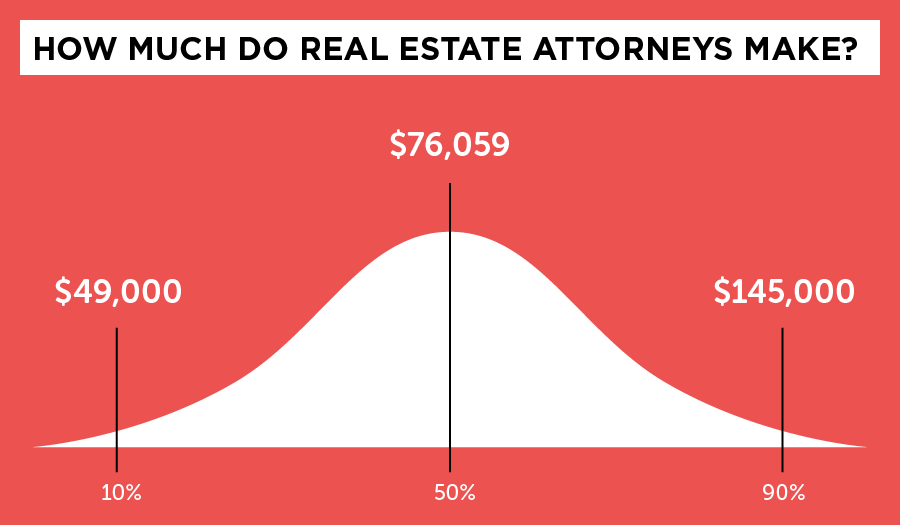Real Estate Law
Overview and Practice Tests
 By Andrei Zakhareuski, BarPrepHero, Founder/CEO
By Andrei Zakhareuski, BarPrepHero, Founder/CEO
More help for you
What is Real Property or Real Estate Law?
Real property is property that is not personal property and is fixed in nature. This usually refers to land and any buildings on that land.
Real property or real estate law is the area of law that deals with real property, particularly with property ownership, real estate agreements of sale, inheritance of real estate, forms of title to property, transfer of title, title searches, the process and steps to close a real estate transactions, fixtures, partition, zoning, rental agreements, commercial leases, options to purchase property, easements and rights-of-way. Liens, mortgages, foreclosure and execution are a part of the basics of real estate law. Real estate law also concerns subdivisions and covenants that run with the land; environmental law and various safety regulations or laws can also impact transactions in real estate.
Start Preparing for Your Bar Exam Now
Common Property Law Issues
There are several topics and issues that arise regularly in the practice of real estate law. Several of the common property law issues are set forth in the preceding paragraph. These are mandatory topics that are studied in law school and that are covered in the Real Property questions in the bar examination. These are also the issues and subject matter that arise in the daily practice of real estate law. The BPH program refreshes these concepts for you, improves your recall through the use of state-of-the art learning methodologies and gives you practice in using this knowledge so that you can be in control when you take the exam.
Title
Title refers to the valid ownership of real property, and a valid title is required to claim and enforce ownership rights. Ownership can be conveyed by a legal document known as a deed or by devise in an owner’s last will and testament. it can manifest through equitable rights or possession in some cases. The BPH course studies the different types of warranties that may be contained in a deed of conveyance and the rules for the valid transfer of title; our hypotheticals also deal with the obtaining of title through possessory concepts or through foreclosure and execution.
Fee Simple Absolute
Fee simple absolute is the most absolute form of ownership. A fee simple absolute is ownership and possession of real property for an infinite term without restrictions. The fee simple owner of the property can pass it on to his or her heirs through intestate succession or by will. Of course, real estate is also widely transferred by purchase and sale.
Life Estate
A life estate is ownership of a property for the duration of the life tenant’s life. Once the life tenant dies, ownership of the property will either pass to a third person or entity or it will revert back to the original owner if he or she is alive, or to the original owner’s estate if the original owner is deceased. Who gets ownership of a life estate after the life tenant dies is determined by the terms and wording of the legal document, i.e., a will or a deed, that granted the property to the life estate owner in the first place.
Fee Simple Defeasible
A fee simple defeasible has conditions placed on ownership of the real property by way of the deed of conveyance or the last will and testament. The owner will only have ownership of the property as long as or until that condition is fulfilled, depending upon whether it is a fee simple determinable or fee simple subject to condition subsequent. A fee simple determinable is subject to a condition in order to retain ownership to the property. If that condition is violated, the property interest will end and revert back to the grantor immediately.
An example of a fee simple determinable would be if somebody is granted a fee simple on the condition that the property be used for charitable purposes. If the property ceases to be used for charitable purposes, the fee simple will end and automatically revert back to the grantor.
A fee simple subject to condition subsequent places a later restriction or condition upon ownership of the property. For example, the grantor may grant a fee simple, but state that if the property is later used as commercial property, then the grantor has the right to retake the property. If the condition subsequent is violated, then the property does not automatically revert to the grantor. The grantor will have a right to re-enter and reclaim the property if they so choose. In the fee simple determinable stated above, the ownership rights cease automatically by operation of law and revert back to the original owner or his or her estate.
Adverse possession
Adverse possession is a way to gain title to the real property of another by occupying the land adversely for a certain amount of time with the intent to possess the land as one’s own. The requirements to establish adverse possession are generally for the possession to be without permission, actual, open, adverse and notorious so that others view the property as belonging to that person or view that person in possession, exclusive to that person, and continuous for a statutory period. Cultivating the land, mowing the grass and putting up barriers to keep others out are all factors tending to prove adversity. If all of these requirements are met, and the owner never re-enters the land to take possession back, then title will be granted to the adverse possessor after the statutory period for that state is reached.
Easement
An easement is a right to use land or enter onto the land and is not a possessory right. An easement can take the form of a right to use someone’s property as a pathway to gain access to a road or a river, or a parking lot for their business. An easement is a property right to use the land but does not constitute a legal right of ownership.
Landlord-Tenant arrangements
Landlord-tenant agreements are contracts between a tenant of a rental property and the person who owns or manages that property. This is the typical arrangement There is a specific set of laws for each state that pertains to landlord-tenant situations.
How to Become an Attorney
To become a real estate attorney, the path will start by obtaining a bachelor’s degree. Once graduating from your undergraduate university, you will sit for the LSAT and then apply to law school. In law school, you will study different areas of law, and hopefully gain relevant experience for later practice through internships, extracurricular activities, and relevant coursework to later practice.
After graduating from law school, you must take and successfully pass the Multistate Professional Responsibility Exam (MPRE) and the State Bar Exam. After obtaining passing scores on these exams, you can apply to the State Bar for admission and get sworn in to practice law.
Remember that the BPH bar prep program will help you hone your skills for the bar examination! Remember that BPH licenses from the NCBE many actual bar examination questions from prior exams. We will always have all prior bar examination questions that have been approved and validated for release by the NCBE! We are strictly an online bar prep program so that you will be able to combine high-level learning strategies with the necessary and increasing convenience of learning from the comfort of your own home!
Requirements
- Undergraduate degree (political science or criminal justice may be helpful, but not necessary; a concentration in English composition is always a benefit)
- Juris Doctor Degree (J.D.) from law school
- Passage of MPRE and all of the other components of your state’s Bar Examination
- State law license
- Practical experience
Job Description and Duties
Real estate attorneys are mainly responsible for helping clients draft real estate contracts or understand contracts before they sign them. They may also represent clients who have real estate law issues to try and remedy these issues, either through mediation, settlement, or before a court.
The main duties of a real estate attorney are to understand and research the state’s relevant real estate and real property laws, conduct research about any legal developments or unique real estate law issues, and negotiate on behalf of the client with respect to the terms and provisions of the subject transaction. Real estate attorneys must also have a working understanding of contract law, as they will often be responsible for drafting and interpreting contracts regarding real estate.
Salary Information and Employment Outlook
The average salary for a real estate attorney is $76,059, with a range of $49,000 to $145,000. The projected job growth for attorneys is 8% from 2016-2026, according to the U.S. Bureau of Labor Statistics (BLS).

Real estate attorneys usually work in a law firm setting, drafting and implementing real estate contracts and representing clients who have real estate law issues. If you are interested in becoming a real estate law attorney, try to gain specialized experience in a local real estate law firm during law school, or take advanced property law or real estate law courses to increase your base of knowledge.
Interested in a legal career beyond traditional paths? Explore how you can qualify to take the Bar Exam without completing law school, opening doors to diverse legal professions, including real estate law.
If you are looking for help passing the bar exam, our free MBE practice tests are here to help. For more studying resources, we have a premium program that guarantees you will pass. Start studying for the bar exam today!

